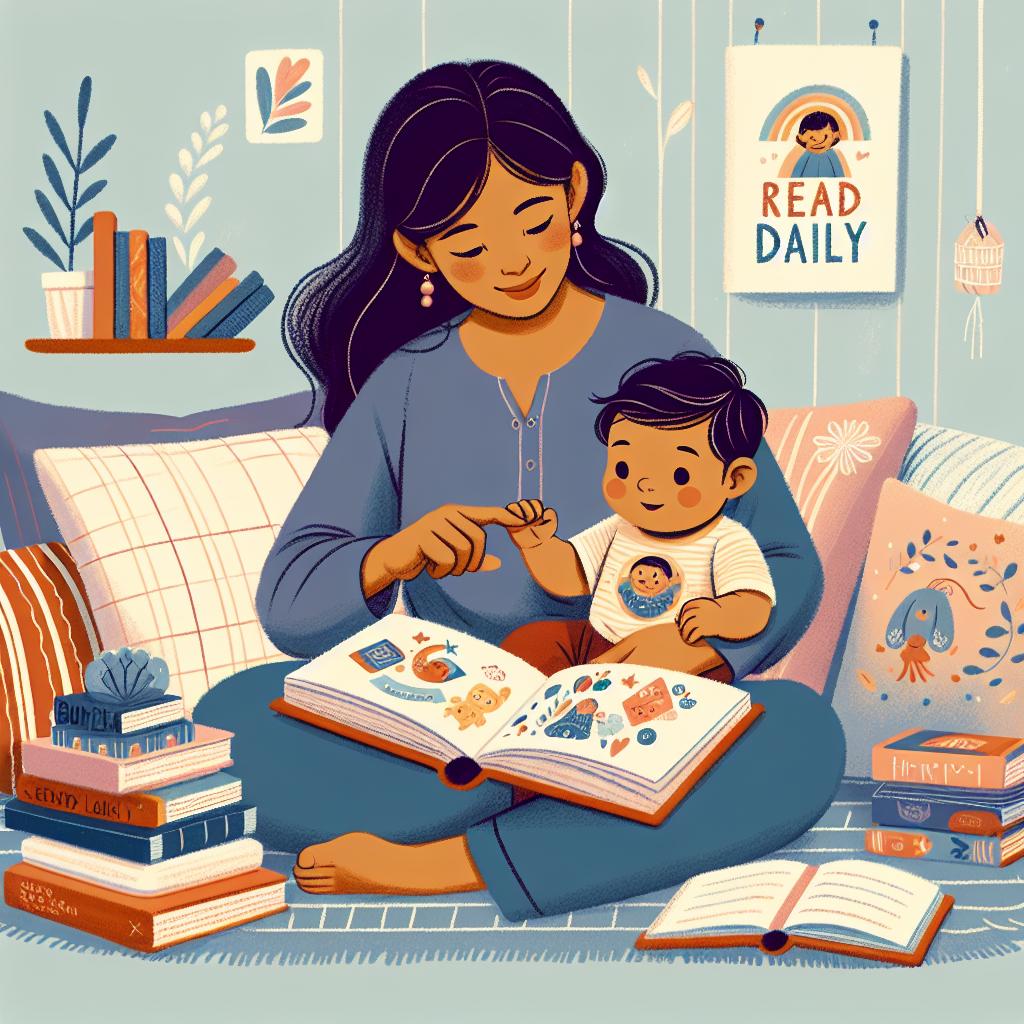Developing Reading Habits from the Cradle
With every gentle lullaby and soothing bedtime story, you’re not just nudging your little one into dreamland. You’re paving the way for a future reader. Introducing books to babies might seem premature, but the earlier you can foster a love for reading, the better off your child will be. According to Zero to Three, a child’s early experiences with books contribute significantly to their future success in school and life.
Why Early Literacy Matters
As they grow, children are developing critical language and literacy skills. Everything your child hears you read fuels their vocabulary growth and understanding of sentence structure. Reading aloud also encourages speech development and cognitive skills.
Early Literacy Tips: Laying the Foundation
Early literacy activities aren’t about teaching your child to read right away. Instead, they create a positive association with books and stimulate learning. Here are some practical ways you can introduce reading:
- Read Aloud to Your Baby: Babies love hearing your voice. In fact, they start recognizing it even before they are born. Use this to your advantage by reading aloud to your baby from an early age.
- Make Reading Part of Your Routine: Create a routine that includes storytime. Bedtime is popular, but you can also read after meals, during bath time, or any time your child needs a calming activity.
- Engage Your Child During Storytime: Point to pictures and talk about what’s on the page. Ask your toddler open-ended questions to get them thinking and interacting with the story.
- Let Your Child Choose the Books: Giving your child some control over what you read together can make the experience more enjoyable for them. Don’t worry if they want to read the same book over and over—it fosters familiarity and confidence.
Finding Age-Appropriate Books
Don’t underestimate the importance of age-appropriate books. For babies and toddlers, look for sturdy board books with bright, simple illustrations. Interactive books with flaps or texture can be especially engaging for young children. As your child grows, so should their book collection.
Reading Activities: Bringing the Story to Life
Unlock your child’s imagination by creating reading activities that correspond with the books they’re reading. For instance, if you’re reading a book about animals, plan a visit to the zoo or create animal-themed craft projects.
Reading Partners suggest that picture books can greatly aid in developing literacy skills. These books can stimulate creativity, improve vocabulary, and foster a deep love for reading.
Remember, it’s not about pushing your child to read independently too soon. It’s about cultivating a positive attitude toward books and reading. This way, when it’s time for them to start reading on their own, they’ll already have a solid love for books to build upon.
Story Time Sessions
Storytimes are an excellent way to foster a love for reading while engaging in stimulating activities. These sessions could include interactive storytelling, puppet shows, sing-alongs, and discussions that encourage your child to think and ask questions. Attending such programs can not only help children with their reading skills but also improve their social and emotional development. You can find such programs at local libraries and schools, like those organized by Onslow County Public Library.
Creating a Reading Culture at Home
Ensuring that your home environment is conducive to reading can greatly help in nurturing a love for books.
- Create a Reading Nook: Design a dedicated, cozy space filled with books, comfy seating and good lighting where your child can read quietly and without interruptions.
- Model Good Reading Habits: Let your child see you reading regularly. Kids often emulate their parents’ behaviors, and if they see that reading is part of your lifestyle, they’re more likely to adopt the habit too.
- Discuss Books Regularly: Create a culture of conversation around books. Discuss about the books you are reading or have read, ask your child about their books, share opinions, and make recommendations.
The Montessori Approach to Reading
The Montessori approach to reading can be another effective method. In this methodology, children are introduced to letters and syllables using tactile, sensory-rich materials which also helps improve their motor skills. Eventually, children are able to independently form words and sentences, encouraging a sense of accomplishment and fostering their love for reading. A Montessori Story provides more insights into this teaching method.
The Role of Parents and Caregivers
Parents and caregivers play a significant role in cultivating reading habits.
- Build a Library: Start building a book collection for your child. Provide plenty of age-appropriate books, both fiction and non-fiction.
- Read Together: Spend quality time reading together. Seeing you enthusiastic about reading can inspire a similar feeling in your child.
- Praise Efforts: Always encourage and praise your child’s attempts at reading. Your words of appreciation can boost their motivation.
The importance of reading to children was also highlighted by All4Kids. They stressed how reading can have far-reaching benefits for children, such as improved academic performance and enhanced empathy.
Benefits Beyond Literacy
While holding a strong association with literacy skills and academic achievement, reading has a positive impact beyond these corners too. A child engrossed in a book is also learning to concentrate, develop creative thinking, and nurture their emotional intelligence.
Raisingchildren.net.au also shares how reading expands a child’s understanding of the world, helps them recognize emotions, and fosters empathy. By stepping into the shoes of a character in a book, a child learns to understand different perspectives, developing their own sense of empathy and sensitivity.
In conclusion, cultivating a love for books and reading from an early age is a gift that your child will cherish forever. It fosters not only academic success but also contributes to overall personal development – creating well-rounded, empathetic, and thoughtful individuals.
